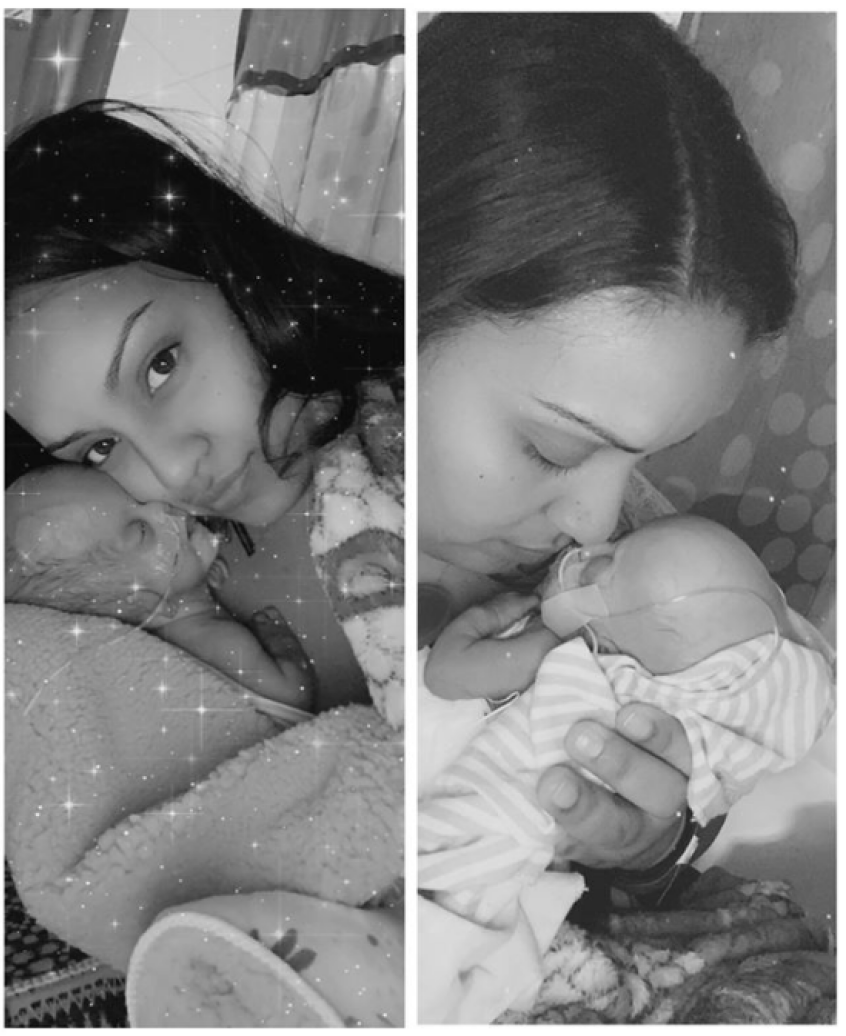
Premature twins given zero chance of survival are now thriving and should be able to join their parents and big sister at home next month.
Twin sisters Makayla and Makenzie Pope each weighed just over 1lb when they arrived at 22 weeks and three days, on 8 December 2019.
Their mother, Tracey Hernandez, told Metro how she started to feel "uncomfortable" when she was out Christmas shopping on the twins' premature arrival date.
Just a few hours later she found herself in labour, 18 weeks early, nervous and scared that the twins would be delivered stillborn.
Recalling the experience, Tracey said: "When I went into labour they told me the survival rate for them was 0%. They said that babies born at less than 23 weeks just don't make it."
However, Makayla and Makenzie Pope were born alive and breathing meaning doctors from Duke University Hospital in North Carolina had to help the little fighters.
Their mother recalled the relief she felt at the time, saying: "They were only able to help them survive because they both came out breathing on their own. If they had struggled to breathe the doctors said they wouldn't have been able to resuscitate.
"The moment I saw them gasping for air was the best moment of my life, it was such a relief.
"When I first saw them I just thought 'wow'. They were here and they are not even developed yet. 'Their skin looked see through and they could fit in the palm of my hand."
But, after more than four months in intensive care, the strong little sisters are progressing remarkably well and aside from some non-critical breathing problems should go on to make a full-recovery.
After successfully overcoming the crucial first few weeks of their fragile lives, Makayla and Makenzie are learning how to breathe on their own and feed from a bottle.
Doctors are now hopeful of being able to send the girls home next month to be with their eight-year-old sister, Jada, and mother Tracey and father Anthony Pope.
"Everyone is just so shocked at how well they are doing and no one gave them a chance before they arrived.
"I am so lucky and I know it's an absolute miracle. I feel blessed."
However, Tracey who is a nurse says the survival of Makayla and Makenzie raises questions about how late doctors should be allowed to carry out abortions.
Tracey, who describes herself as pro-life, said: "My babies are proof that 22 weekers can survive if given the chance.
"It's not right that life is only viable at 23 weeks. Normally babies born before then are just written off and not given a chance to survive.
"I just don't agree with the abortion laws as they stand at all. My two babies came out alive and looked fully formed.
"Babies this small can survive and are a real life…the limit should be lower."
Last year, it was revealed that the survival rate for extremely premature babies has doubled over the past decade, prompting new guidance allowing doctors to try to save babies born as early as 22 weeks into a pregnancy.
However, it is currently legal in Great Britain to abort unborn babies up to 24 weeks, or up to birth if doctors believe the baby will be born with a disability.
A spokesperson for Right To Life UK Catherine Robinson said: "It has been over a decade since abortion time limits were last debated fully in Parliament, in 2008. Since then the survival rate for premature babies has doubled. Our current abortion time limit, at 24 weeks, is way out of line with medical breakthroughs and the rest of Europe where the most common abortion time limit is 12 weeks, making time limits an issue Parliament should urgently revisit."
Makayla and Makenzie have entered the history books as the world's second most premature babies to ever survive.
According to Guinness World Records the most premature twins are Keeley and Kambry Ewoldt, from Iowa, who were born at 22 weeks 1 day on November 24 2018.
In the UK, premature twin boys Ashley and Joe Keates each weighed less than 1lb when they were born at just 23 weeks.Doctors gave them just a 1% chance of survival but like Makayla and Makenzie, Keeley and Kambry are now thriving at home.
This article first appeared at https://righttolife.org.uk/ and is published here under a Creative Commons licence.













